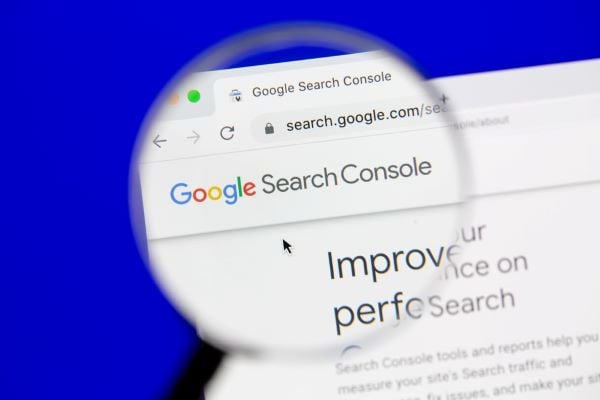At EverConvert, we specialize in helping law firms and businesses improve their online presence with tailored SEO strategies. Our team focuses on delivering results through a combination of on-page optimization, technical SEO, content marketing, and analytics to ensure your website ranks higher in search results and drives qualified traffic. We understand the unique needs of the legal industry and are committed to helping you reach your target audience effectively.
In 2025, SEO continues to be a crucial component for law firms aiming to enhance their visibility and attract more clients online. With the legal industry becoming increasingly competitive, understanding and applying the right SEO ranking factors can make a significant difference in how well a firm performs in Google search results. As search engine algorithms evolve, law firms must stay updated on the factors that influence their search rankings.
In this blog, we’ll explore key SEO ranking factors for law firms in 2025 and how working with EverConvert can help enhance your online presence through premier SEO services.
Understanding SEO Ranking Factors for Lawyers in 2025
SEO ranking factors play a key role in how law firms appear in search results. In 2025, it’s crucial for lawyers to understand these factors to maintain visibility in Google search rankings.
What Are SEO Ranking Factors?
SEO ranking factors are the elements that search engines, like Google, use to determine the order of web pages in search results. These factors include both on-page and off-page elements, such as content quality, site speed, and inbound links, that directly impact a website’s ability to rank well.
Google Search Algorithm and Its Role
Google’s search algorithm evaluates websites based on various SEO ranking factors. This algorithm helps decide which web pages are most relevant to a user’s search query. It’s designed to provide the best possible results for users, considering SEO ranking factors like page speed, mobile-friendliness, and the relevance of content.
Relevance of Search Intent
Understanding search intent is vital for ranking well in Google search results. When a user searches for a specific legal service, the content should address their needs directly. By targeting the right keywords and providing helpful answers, law firms can match the search intent and improve their search rankings.
The Importance of Keywords
Relevant keywords are critical to ranking well in search engines. Choosing the right target keywords that align with the user’s search query ensures your content is visible in search engine results. Using LSI keywords and synonyms in content helps improve relevance and SEO performance.
Technical SEO and User Experience
Technical SEO ranking factors like site speed, internal links, and mobile friendliness are essential for improving user experience and search rankings. Websites with fast load times and a mobile-friendly design are more likely to rank higher. A positive user experience, such as easy navigation and low bounce rates, signals to search engines that your site is valuable.
Content Quality and Google Rankings
Content quality remains one of the most important SEO ranking factors. Google values content that is original, informative, and answers a user’s query. By creating high-quality, relevant content, law firms can enhance their ability to rank in Google search results and drive organic traffic.
The Top Google Ranking Factors That Impact Law Firm Websites
Certain SEO ranking factors have a significant impact on how law firm websites rank in Google search results. Here are the most important SEO ranking factors law firms must consider in 2025.
Content Quality and Relevance
Content quality is one of the most important SEO ranking factors. Google prioritizes content that is relevant, well-written, and answers the user’s search query. By focusing on high-quality content that directly addresses a legal issue or need, law firms can improve their chances of ranking higher in search results.
Page Speed and Site Performance
Page speed plays a critical role in SEO rankings. Google ranks web pages with fast load times higher than those with slower speeds. Law firms should ensure their website loads quickly to enhance user experience and improve search engine rankings.
Mobile Friendliness
With more users browsing on mobile devices, mobile-friendliness has become one of the most important SEO ranking factors. Websites that are not optimized for mobile will see a drop in their Google rankings. Law firms need to ensure their website’s mobile version is fully responsive and easy to navigate on smartphones and tablets.
Internal Links and Site Structure
Internal links help search engines crawl and index a website more effectively. A strong internal linking structure improves site navigation and helps distribute page authority. Law firms should use relevant internal links within their pages to create a logical site structure and enhance SEO efforts.
User Experience and Engagement
Google values websites that provide a positive user experience. Law firm websites that are easy to navigate, with clear calls to action and engaging content, are more likely to rank higher. Reducing bounce rates and improving engagement signals to Google that your site is relevant and useful.
Inbound Links and Domain Authority
High-quality inbound links from authoritative websites significantly impact search rankings. Google considers these inbound links as signals of trust and relevance. Law firms should focus on building a strong link-building strategy with reputable legal sites to boost domain authority and improve Google rankings.
Structured Data and Rich Snippets
Implementing structured data and schema markup helps search engines better understand the content of a web page. This improves the chances of appearing in rich snippets and can increase click-through rates. Law firms should use schema markup to highlight important details like legal services, contact information, and locations.
Content Optimization for Relevant Keywords
Optimizing content with relevant keywords is crucial for ranking well in Google search results. By including targeted keywords in key areas such as titles, headings, and meta descriptions, law firms can improve their content’s visibility and relevance to the user’s search query.
The Role of Google Search Console and Analytics in SEO for Lawyers
Google Search Console and Google Analytics are essential tools for law firms looking to improve their SEO performance. These tools help track, analyze, and optimize various aspects of a website’s search presence.
Monitoring Search Performance with Google Search Console
Google Search Console provides valuable insights into how your website performs in Google search results. It shows the keywords your website ranks for, how often it appears in search results, and its average position. Law firms can use this data to refine their SEO ranking factors and identify opportunities for improvement.
Identifying Crawling Issues and Fixing Errors
Google Search Console also helps detect crawling and indexing issues. If there are problems preventing Google from properly indexing your web pages, you can quickly address them. This ensures that search engines can crawl your content and include it in search engine results.
Improving Site Speed with Google Analytics
Google Analytics offers detailed data on site speed and user behavior. Law firms can use this data to identify slow-loading pages and make improvements. Optimizing website speed is essential for maintaining a positive user experience and boosting Google rankings.
Analyzing User Behavior and Engagement
Google Analytics tracks how users interact with your website. By analyzing bounce rates, average session duration, and page views, law firms can gain insights into user behavior. Understanding this data helps improve the user experience and identify areas for optimization.
Tracking Keyword Performance and Search Queries
Google Analytics allows law firms to track keyword performance and see how specific search queries are driving traffic. This data helps identify which relevant keywords are performing well and which need further optimization. Monitoring keyword performance can guide content strategies and improve search rankings.
Monitoring Mobile-Friendliness and Mobile Traffic
Both Google Search Console and Google Analytics provide insights into mobile traffic and mobile-friendliness. Law firms can use this information to ensure their website is properly optimized for mobile devices, which is crucial for maintaining good Google rankings in 2025.
Adjusting SEO Strategies Based on Data
Both tools allow law firms to track their SEO efforts and adjust strategies accordingly. Regular analysis of data from Google Search Console and Analytics ensures that SEO strategies are aligned with user’s search intent and can help improve overall search engine optimization efforts.
Ready to Boost Your Law Firm’s SEO? Consult With EverConvert Today!
If you’re looking to improve your law firm’s online visibility and drive more targeted traffic, our team at EverConvert is ready to help. We specialize in creating customized SEO strategies designed to enhance your search engine rankings and attract more potential clients. Whether it’s optimizing your website, improving content quality, or implementing technical SEO, we have the expertise to help your law firm succeed in 2025 and beyond.
Contact us at 252-814-6001 to get started today!




